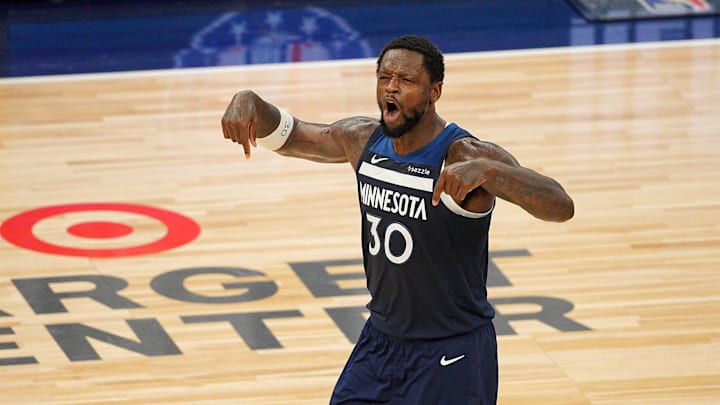Just two days after extending Naz Reid, the Minnesota Timberwolves agreed to a three-year $100 million contract extension with Julius Randle. This three-year deal includes a player option for the 2027-28 season. Randle previously held a $30.9 million player option and now gets a slight raise. Retaining Randle and Reid was the priority for Minnesota heading into the offseason. Crucially, the Wolves were able to get Randle back on a team-friendly deal.
BREAKING: Three-time NBA All-Star Julius Randle intends to sign a new three-year, $100 million deal to stay with the Minnesota Timberwolves, sources tell ESPN. The deal includes a player option for the 2027-28 season. pic.twitter.com/j8fKA45gXu
— Shams Charania (@ShamsCharania) June 29, 2025
Randle's contract is great value
Randle averaged 18.7 points, 7.1 rebounds, and 4.7 assists on 48.5/34.4/80.6 shooting splits during his first season with the Wolves. In the playoffs, Randle averaged 21.7 points, 5.9 rebounds, and 4.9 assists on 50.2/38.5/88 shooting splits; he was especially vital in the first two rounds. Randle’s presence as a secondary creator next to Anthony Edwards is essential. He is capable of being a second option on a championship team. To secure a player of that caliber on a deal under $35 million annually is a massive win for the Wolves, especially given their high payroll.
With Randle's contract being fairly short-term it also gives the Wolves some level of future flexibility. As the cap increases, Randle's deal will look even more like a steal. Even now, an annual salary of $33 million is a similar value to many third or fourth options across the league. For reference, Randle will make less than Deandre Ayton, Rudy Gobert, Jalen Suggs, and Michael Porter Jr., among other players, next season. Simply put, getting an All-Star caliber player and second option at this price is incredible value.
After re-signing Randle, the Wolves are $2 million below the second apron. This might not sound like much, but many people believed they'd have to dip into the second apron for another season to re-sign Randle. Possibly avoiding the second-apron penalties next season or having the option to make another move in the offseason is massive for Minnesota.
Minnesota offseason
— Bobby Marks (@BobbyMarks42) June 29, 2025
* T'wolves slightly below the 2nd apron
* Not allowed to use the $5.7M tax ML
* Can re-sign their own free agents pic.twitter.com/oNbAgWxQNb
Now, the Wolves have some level of financial flexibility this offseason. Perhaps they can even re-sign Nickeil Alexander-Walker. Alternatively, they could make some improvements around the edges in free agency. While the Wolves still have a high payroll, Randle's deal was slightly lower than expected, making it a win for Minnesota. Given that Minnesota is on the border of the second apron, they could still opt to let Alexander-Walker leave. Even without Alexander-Walker, the Wolves still have a championship-level roster.
The Wolves' goal heading into the offseason was to re-sign Randle and Reid; accomplishing this before free agency starts is a massive win, especially given the value of Randle's contract. Minnesota is poised to be in the mix for a championship, and Randle will be a crucial part of this.
